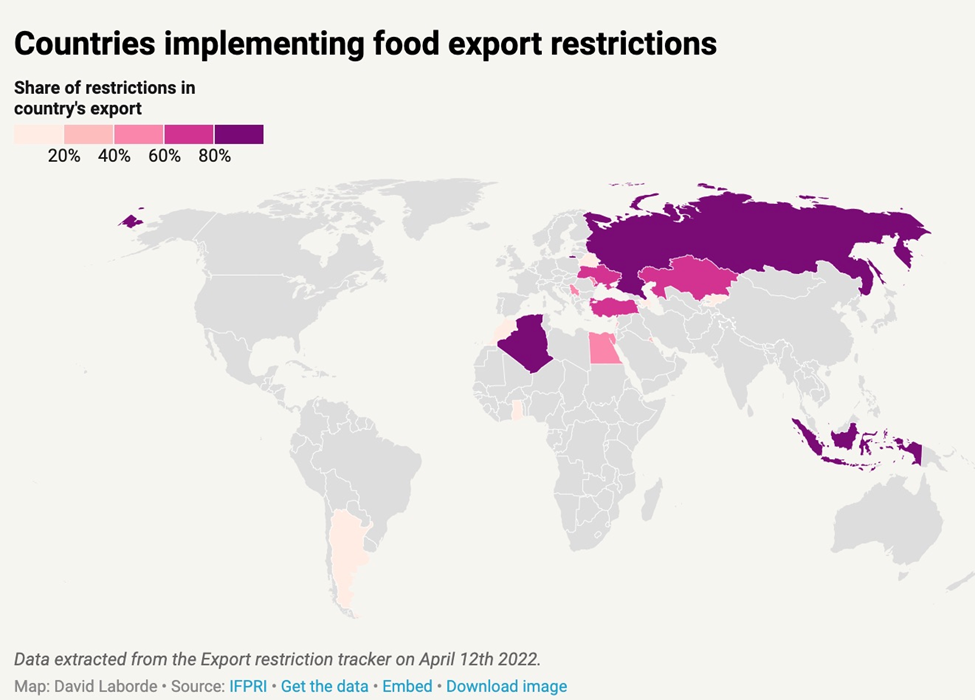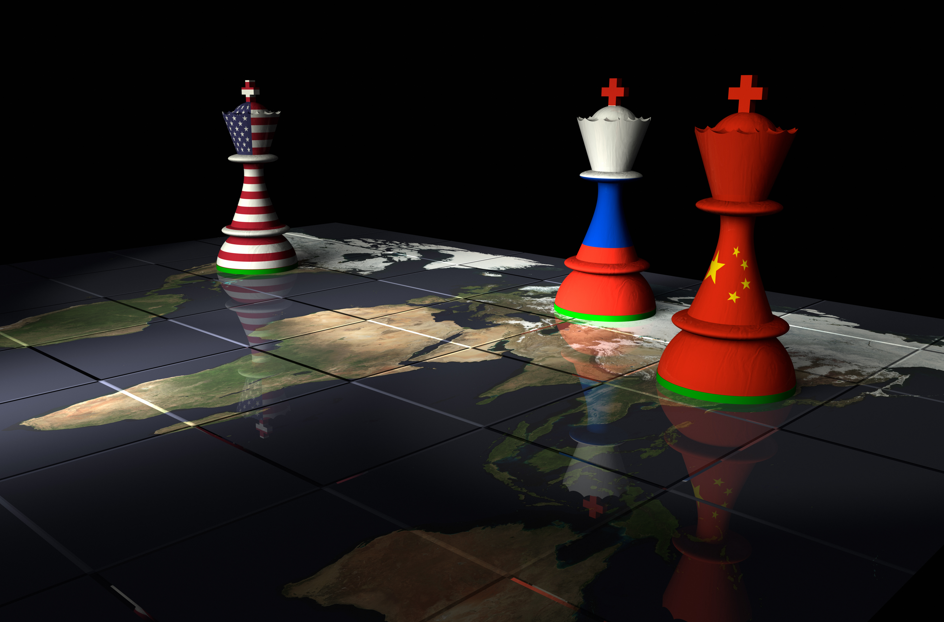Lucio Blanco Pitlo III, President of Philippine Association for Chinese Studies, and Research Fellow at Asia-Pacific Pathways to Progress Foundation
Sep 30, 2022
Taiwan and Ukraine have drawn many comparisons this year due to the perceived similarities in their precarious security situations. In the wake of the crisis in Ukraine, countries are watching situations like the one in the Taiwan Strait closely.
Li Yan, Director of President's Office, China Institutes of Contemporary International Relations
Sep 19, 2022
The many tensions that exist already between the U.S. and China already seemed to border unmanageable. And with the Russia-Ukraine conflict continuing to rage on, its long term effects will surely spill over into the relationship between East and West.

Leonardo Dinic, Expert in Geopolitics and International Business, the Future of Work, and Emerging Technologies
Sep 06, 2022
The war in Ukraine created a food crisis in an instant - and just like how the pandemic has emphasized the interconnectedness of the global community, the far-reaching impact of food exports being locked in Ukraine and Russia is rippling across Asia right now.
Richard Javad Heydarian, Professorial Chairholder in Geopolitics, Polytechnic University of the Philippines
Sep 06, 2022
Russia has struggled to maintain strategic momentum in Southeast Asia because of Western sanctions. The Eurasian powerhouse’s setbacks in Southeast Asia will ultimately strengthen the centrality of both China and the U.S. in shaping the regional security architecture.
Wu Zhenglong, Senior Research Fellow, China Foundation for International Studies
Sep 02, 2022
The European Union will see sanctions through regardless of cost. Meanwhile, it is feeling the backlash. As pressure continues to advance, the trouble will ferment, eroding their resolve. Will the EU be able to tough it out? That’s anything but certain.
Jin Liangxiang, Senior Research Fellow, Shanghai Institute of Int'l Studies
Aug 29, 2022
The failure of the U.S. president’s Mideast visit in July can be attributed largely to insensitivity over the legitimate concerns of GCC countries. It’s yet another example of America’s long-standing pattern of pushing for its own agenda at the expense of others’ dignity.

Xiao Bin, Deputy Secretary-general, Center for Shanghai Cooperation Organization Studies, Chinese Association of Social Sciences
Aug 26, 2022
Its biggest troubles come from Western sources, which have levied sanctions and provided military aid to Ukraine. While Russia has lost the ability to manipulate international politics, an alignment with China could add new variables.
Leonardo Dinic, Expert in Geopolitics and International Business, the Future of Work, and Emerging Technologies
Jul 29, 2022
There is uncertainty in the relationship between the EU, the U.S. and China due to the EU’s increased dependence on Russian Oil and Chinese goods and markets, amidst the Ukraine war and increased tensions between the U.S., China and Russia.
Wu Zhenglong, Senior Research Fellow, China Foundation for International Studies
Jul 25, 2022
A peaceful resolution may be achieved in Ukraine but only under certain conditions - ones which don’t appear to be materializing any time soon.
John Gong, Professor at University of International Business and Economics and China Forum Expert
Jul 13, 2022
When President Lyndon B. Johnson sent two battalions of U.S. Marines ashore the beaches at Danang in Vietnam on March 8, 1965, he probably had never imagined that America’s subsequent gradual military escalation would reach the height of over half a million troops, suffering more than 58,000 casualties, and eventually resulting in a totally disgraceful withdrawal after 8 years of brutal but futile fighting to shore up the Saigon regime
Back to Top

- China-US Focus builds trust and understanding between the U.S. and China through open dialogue among thought leaders.
- Our Offerings
- Topics
- Videos
- Podcasts
- Columnists
- Research Reports
- Focus Digest
- Stay Connected
-
Thanks for signing up!
- Get the latest stories from China-US Focus weekly.